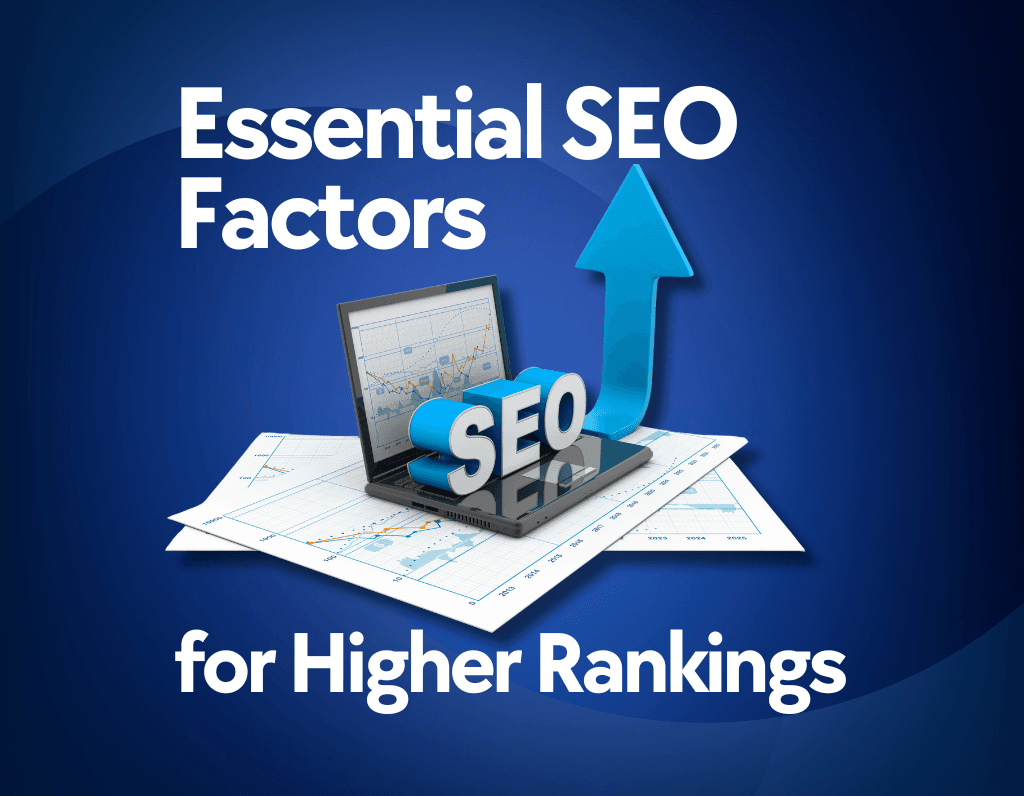
Search Engine Optimisation (SEO) is the practice of improving the visibility of your website on search engine results pages (SERPs). By understanding and implementing key SEO factors, you can attract more organic traffic and increase your online presence.
Here are some of the key SEO Factors for Higher Rankings:
Quality of Content
High-quality content is the backbone of any successful SEO strategy. It ensures your website is relevant, valuable, and engaging to your audience, keeping visitors on your site longer and reducing bounce rates.
According to HubSpot, 82% of marketers actively use content marketing to engage potential customers, highlighting its importance.
By crafting original, well-structured, and keyword-optimised content, you improve your chances of ranking higher while building trust with your readers.
- Relevance: Produce content that directly meets the intent of the target searcher’s query.
- Originality: Unique content, avoiding duplication; fresh insights.
- Readability: Writing clear, concise, well-structured content.
- Keyword Optimisation: Using relevant keywords while not overstuffing your content.
Keyword Research
Keyword research helps you understand what your audience is searching for, allowing you to create content that addresses their needs. Long-tail keywords, while less competitive, often lead to higher conversion rates because they target specific intents.
Ahrefs SEO Statistics for 2024 indicate that 94.74% of keywords get ten searches or fewer per month, showing the value of finding niche terms.
With proper research, you can uncover opportunities that align with user intent and drive meaningful traffic to your website.
- Identify Keywords: Finding keywords that your target audience is searching for by the use of tools. Keyword Difficulty: The challenge of competing for each keyword is known as keyword difficulty.
- Long-Tail Keywords: Target longer, more specific keywords with lower search volume but higher conversion potential.
On-Page SEO
On-page SEO ensures your content is easily understood by search engines and appealing to users. Optimised title tags, headers, meta descriptions, and URLs make your pages more clickable and accessible.
Backlinko reports that title tag remains an important on-page SEO signal.
By following best practices, you can create content that’s not only readable, but also ranks higher on search engine results pages.
- Title Tags: Give each page an attention-grabbing title tag that is packed with keywords.
- Meta Descriptions: Write concise and informative meta descriptions to entice clicks.
- Header Tags (H1, H2, etc.): Use header tags to structure your content and highlight important points.
- Image Optimisation: Optimise the image file size and descriptive alt text.
- URL Structure: Develop clean and keyword-rich URLs.
Technical SEO
Technical SEO is the foundation of a functional and accessible website. It ensures that search engines can crawl and index your pages efficiently, while features like HTTPS and fast loading speeds provide a secure and smooth user experience.
Google states that a page that loads in under five seconds sees 70% longer session durations, making speed optimisation critical.
A technically sound site improves both rankings and user satisfaction.
- Page Speed: Improve the loading speed of your website to make it user-friendly.
- Site Structure: Organise your website in a clear and logical manner.
- XML Sitemap: Create an XML sitemap that will aid in the search engine crawl and indexation of your website.
- HTTPS: Implement HTTPS on your website, which ensures protection of users’ data.
Backlinks
Backlinks signal to search engines that your website is credible and valuable. Quality over quantity is key, as links from authoritative websites carry more weight than numerous low-quality ones.
Ahrefs indicates that search engines, such as Google, consider these links as votes of confidence. They use them to rank pages and discover new ones.
By earning natural backlinks through outreach and great content, you can significantly boost your website’s authority and search visibility.
- Quality Backlinks: Establish good quality backlinks from respectable websites.
- Natural Backlinks: Focus on earning natural backlinks with the help of content and outreach.
- Avoid Black-Hat Tactics: Steer clear of spammy activities such as link buying or schemes.
User Experience (UX)
A seamless user experience keeps visitors engaged and encourages them to take action. Easy navigation, fast load times, and mobile responsiveness are essential in today’s digital landscape, where users expect immediate results.
Google reports that 53% of mobile users abandon sites that take longer than three seconds to load.
By prioritising UX, you can enhance user satisfaction and improve your search engine rankings.
- Easy Navigation: Make sure your website has menus that are straightforward to understand.
- Fast Loading Times: Optimise your website for speed to minimise bounce rates.
- Mobile-Friendly Design: Make sure your website is mobile-friendly by optimising it for mobile devices.
- Clear Call-to-Actions: Guide users toward desired actions with clear CTAs.
Local SEO
Local SEO helps businesses connect with nearby customers by improving visibility in local search results. Tactics like optimising your Google My Business listing and creating local citations build trust and authority in your community.
According to Google data, 76% of people who search for a nearby business visit it within a day, proving the effectiveness of local SEO.
A strong local presence can drive foot traffic and increase online inquiries.
- Google My Business: Take control of and improve your listing.
- Local Citations: Create citations on websites and directories in your area.
- Geo-Targeting: Target specific geographic locations with relevant content.
Conclusion
SEO is a crucial factor for businesses to improve their online visibility and attract organic traffic. By understanding and implementing key SEO factors, such as high-quality content, keyword optimisation, on-page SEO, technical SEO, backlinks, user experience, and local SEO, you can enhance your website’s ranking on search engine results pages (SERPs).
Remember that this is a constant process requiring persistence and adaptation in changing the algorithm of the search engines, hence keeping one informed of latest trends and best practices in an industry will always make their website competitive with steady numbers of potential customers coming at your doorstep.
